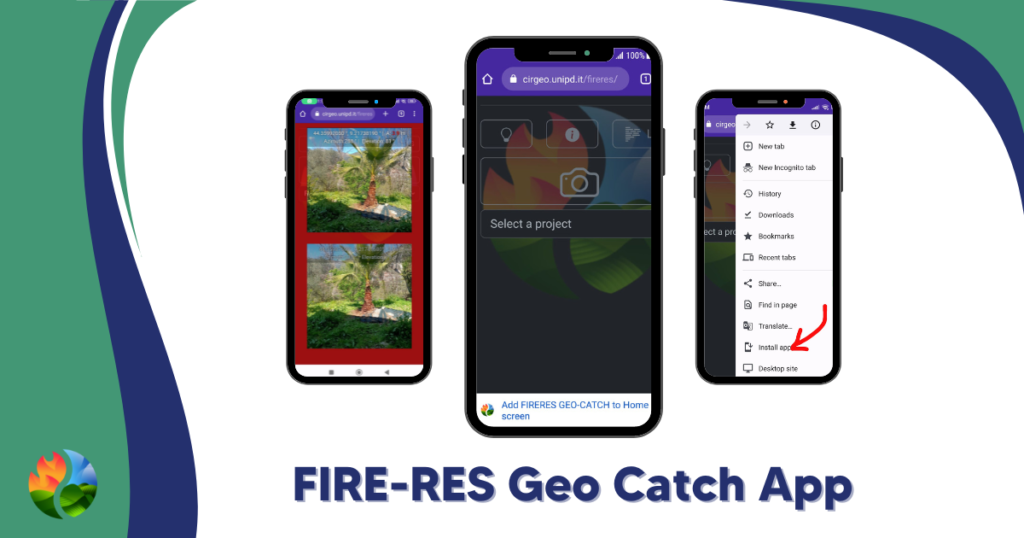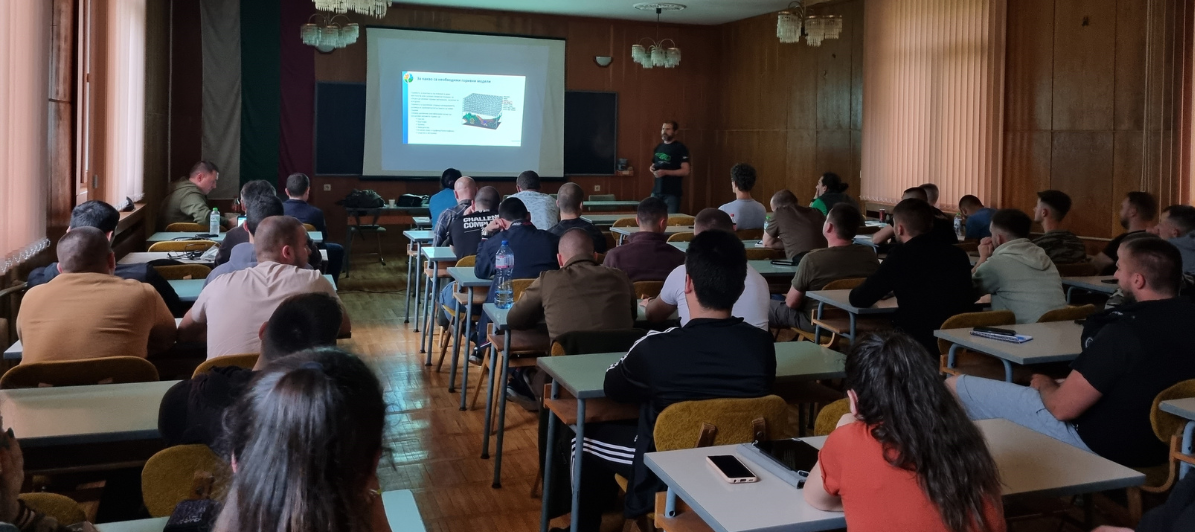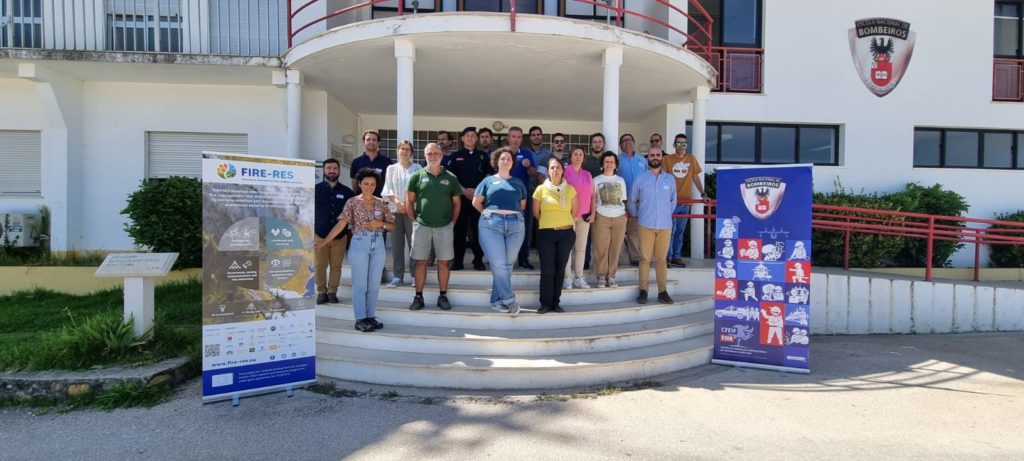
Forest fires are a major concern in southern Europe, accounting for about 85% of the annual burned area on the continent. In 2021, forest fires affected 22 out of the 27 EU countries, burning approximately 500,000 hectares.
To address this issue, the University of Padova (UNIPD) developed the FIRE-RES Geo Catch App. It is a user-friendly solution to support the process of validating fuel characteristics across European ecosystems, enhabling more accurate fire risk assessments, and therefore planning more efficient preventive measures.
mobile-based surveying: collecting reliable data for artificial intelligence segmentation
Mapping fuel types across large-scale landscapes often presents challenges due to limited ground-obtained data for model training. Vegetation characteristics such as stratification, composition, and vertical distribution vary extensively across landscapes, making their identification complex. The latest advancements in remote sensing technologies, including satellites, drones, and portable sensors, have significantly improved our ability to map vegetation parameters. However, predictions derived from these technologies may still contain errors, especially at large scales and when control data is missing.
To address these issues, the FIRE-RES Geo Catche App incorporates mobile-based surveying approaches to collect necessary data for artifical intelligence segmentation, including training, testing, and validation for a follow-up research. By conducting field inventories using mobile devices, the app enables the collection of reliable data that accurately represents the real-world variability of fuel types and landscapes. Its primary objective is to provide a quick, simple, and reliable mean of collecting oriented and geolocated images, ensuring consistency across large areas and capturing a comprehensive range of European fuel types and landscapes.
The collected images are interpreted by experts using an online web-GIS and standard guides to classify them into fuel types. To ensure the highest quality in the images, they need to pass a rigorous clean-up process before moving forward. Then, each image undergoes to be interpreted by multiple experts, allowing for consensus checks among them. In cases where interpretations differ, further interaction among experts is conducted to reach a consensus. This rigorous process ensures the generation of a robust pan-European fuel map during subsequent research conducted by the project.
training stakeholders to improve the geo catch app
To ensure effective implementation, two training sessions were conducted during May and June in the Bulgarian Living Lab (Stara Zagora and Baria), as well as one on 7 July in the Portuguese Living Lab (Lousa). The training sessions enabled potential stakeholders (such as the forest service, fire service, civil protection, and students) not only to acquaint themselves with the app but also to identify potential bugs in the App, enhancing its functionality and user-friendliness.


Following the high interest of stakeholders in participating in the training sessions, Bulgaria has currently uploaded the highest number of photos to the system.
The successful trainings in Bulgaria will be followed by other living labs, such as Galicia, Sardinia, and Greece in the coming months. With its user-friendly interface and comprehensive data collection approach, FIRE-RES Geo Catch App is poised to make a significant contribution to improving forest fuel maps in Europe. By empowering stakeholders and normal citizen, the app holds the potential to reduce fire ignitions caused by human activities and alleviate the burden on fire management agencies during each fire season.
FIRE-RES Geo Catch App can be either downloaded or used directly in your browser here. More information on how to use the app is also available in these guidelines.